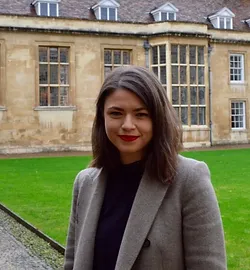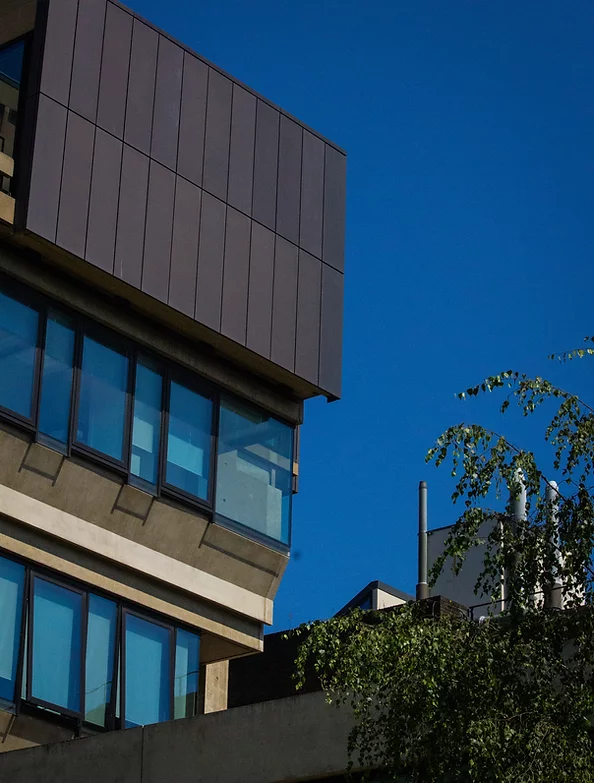Fall 2024 Admissions is officially OPEN. Sign up for the next live information session here .

CAMBRIDGE CENTRE
For international research, academy➔ think tank➔.
A network of knowledge
Public Lectures
Student Research Spotlight
Dive Deep Discover the world through research.
We work with top Oxbridge faculty to bring research to the brightest young minds of today.
The CCIR Academy offers two unique programmes to empower the next generation of researchers.
Cambridge Future Scholar
Join a highly-selective online research programme designed and taught by Ivy League and Oxbridge professors.
Fall Admission OPENS Now
Early Admission Deadline: 1 October 2024
Regular Admission Deadline: 15 October 2024
Fall Start Date: October/November 2024
1-on-1 Research Mentorship
Embark on tailor-made research experience with an Oxbridge faculty mentor.
Admission Open All Year
the Academy
Our students don’t just consume knowledge. They create it.
At CCIR, we are incredibly proud of the work our students do. The aim of the Student Spotlight series is to showcase the amazing work that our students do at our programmes. In this episode, Audrey talks about her work on the history of Brexit under the mentorship of Dr. Devlin (Cambridge); she shares about her work and her experience conducting high-level independent research at CCIR.
Latest News
All of our unedited long-form student interviews are all in one place. You can watch our students’ talk about their work and their experiences at CCIR Student Research Spotlight.
Make an impact. Connecting researchers with the public.
The CCIR Think Tank operates a range of non-profit initiatives that aim to empower researchers as public intellectuals.
We fund and support early-career researches to do public intellectual work.
Explore the cutting edge of academic research with CCIR.
Re:think Essay Competition
Inviting students to reflect on the most important issues of today.
Public Lecture Initiative
Bringing leading scholars to high schools around the world.
Learn more about the Think Tank
the Think Tank
Our fellows are early-career researchers who aspire to be public intellectuals.
Ronja Griep is a Gates Scholar and a current Ph.D. candidate at the University of Cambridge working in feminist political philosophy. For her CCIR fellowship, she will be leading an interview series on 21st Century Body Politics, where she will discuss the politics of bodily beauty and wellness with leading academics in philosophy, the social sciences, and beyond.

The RE:THINK Essay Competition
The 2021 Re:think Essay Competition invited high school students around the world to document, investigate, and to reflect upon the COVID-19 pandemic. In this culminating conference, our winning essayists are joined by our three distinguished Cambridge faculty judges—Dr. Tom McClelland (Cambridge, Philosophy), Dr. Hande Güzel (Cambridge, Sociology), and Dr. Daniele Casesse (Cambridge, Economics).
Watch the award-winning presentations here.
The CCIR x YIP Social Media Politics Policython
Over the course of two days, students explored the question of how social media can be transformed into a positive force in global politics, engaging in discussion with academics, social media influencers.
Watch the keynote lectures here.
See all our latest work
The Cambridge Centre for International Research was founded by a group of Cambridge graduates committed to making academic research more accessible to the public. Working with leading researchers and early-career academics, we seek to expand the reach and impact of ideas that matter.
Our mission

Download Programme Prospectus
- Programme structure
- Research course catalogue
- Professor biographies
- Tuition and Scholarship
Start Your Application
Cambridge Future Scholar (Fall 24)
Admission is OPEN.
Early Admissions Deadline: 1 Oct
Regular Admissions Deadline: 15 Oct
Rolling Admissions.
1-on-1 Research Mentorship Admission is open all year.

The Yale International Relations Global Essay Competition 2024-2025
Registration Fee: USD 25
Registration is Open!

About the YIRA Global Essay Competition
The Yale International Relations Essay competition provides an exciting opportunity for students to show their talents and ideas to Yale students and receive feedback from students accomplished in International Relations.
This competition inspires students to push their boundaries and experiment with diverse writing styles, enhancing their overall writing proficiency., with participants from across the globe.
Why Should You Participate?

Enhance Writing Skills
Critical Thinking
Valuable Feedback
Prestigious Recognition
Main outcomes.
Valuable feedback to enhance your writing proficiency.
Opportunity to challenge and refine your academic capabilities.
Recognition and awards for the top 3 essays.
Designation as "Finalists" for the top 25% of participants, acknowledging their exceptional contributions.
Awards and Recognition
All Participants to receive certificates from Yale International Relations Association and Learn with Leaders
Grand Prizes for Top Winners
- 1 st Position USD 500
- 2 nd Position USD 400
- 3 rd Position USD 300
The Yale International Relations Essay Competition Timeline

- Webinars on Essay Writing 11th Jan 2025: What global issues are important to you? Understanding how you see the world. 18th Jan 2025: What makes a competitive essay? 25th Jan 2025: How should we tackle global issues? 1st Feb 2025: Top Tips for editing your essays. Submission of the Essay 3rd-9th Feb, 2025
- Result and Topic Announcements The Top 50 Finalists will be announced, with 10 students selected from each grade (8-12). 9th March Final topics will be sent 10th March Webinars and Info Sessions Webinar on Global Essay Writing: 15th March Office Hour with the Finalists 16th March

Rules of the Competition
1. students must submit a 400-word essay on the given theme. the theme for the essay will be announced in january 2025., 2. top essays will justify their chosen issue and propose brief ideas for solutions., 3. finalists will undergo evaluation by yale students, who will select the top inspirational 3 essays., 4. winning essays will push our judges to reflect on the world around them and inspire action., judging criteria.
Exhibit good grammar and a coherent, strong structure.
Demonstrate an awareness of the world around them.
Clearly answer the question by explaining the significance of the issue.
Be bold and exciting to read.
Begin to explore potential solutions to the issue.
Be thought-provoking, leaving the reader with questions to ponder.
About Yale International Relations Association
The Yale International Relations Association is the largest student-run organizations at Yale College. After the political turbulence of the 1960s, a group of Yale students came together seeking to promote a better understanding of global affairs. As a result, the Yale International Relations Association (YIRA) was founded in 1969.
YIRA strives to foster conversation about international relations on campus and beyond through conferences, classes, travel, publications, and speaker and social events. We aim to create an inclusive, diverse, and accessible educational space for students, providing resources that enrich public speaking, leadership, critical analysis, and problem-solving abilities so members may best apply their passion for international relations and give back to the world.

Meet your Mentors

Shalina Effendi is a sophomore at Yale University from Houston, Texas majoring in Global Affairs. On campus, she serves as the secretary for the Yale International Relations Association, Director-General of Yale Model UN Dubai, and compete on the Model UN team at Yale.

Noah Killeen is a second-year student at Yale College, majoring in Ethics, Politics, & Economics, with plans to attend law school after graduation. He is actively involved in the Model UN Competitive Team, Yale Votes, and the Yale Undergraduate Law Journal. In addition to his extracurricular activities, he works as an Undergraduate Recruitment Coordinator for the Admissions Office, where he connects with prospective and incoming students and organizes events. Originally from Goodyear, Arizona, he enjoys playing tennis, hiking, and driving with friends during his free time.

Poppy is an international student from South Wales and is a Sophomore in Morse college. She has a passion for understanding the world and has pursued this through her double major in History and Politics and through extra curricular activities such as MUNTY (Yale's competitive MUN Team). Poppy is proudly Head Delegate of MUNTY. In addition to this, she has worked on MUN conferences in India and Singapore, volunteers with multiple social outreach groups on campus and is a passionate climate and social justice activist having launched the UK’s first Climate Refugee petition. Beyond this, Poppy loves Taylor Swift, horse riding and hanging out with her friends!

IMAGES
VIDEO
COMMENTS
We are pleased to announce the winners of the 2024 International Essay Contest for Young People. This year the Essay Contest was held under the theme “My Experience of …
The Queen's Commonwealth Essay Competition is the world's oldest international writing competition for schools, proudly delivered by the Royal Commonwealth Society since 1883. …
An updated list of free-to-enter writing contests—short story, flash fiction, poetry, essays, songwriting, articles, feature articles, interviews and memoirs.
The spirit of the Re:think essay competition is to encourage critical thinking and exploration of a wide range of thought-provoking and often controversial topics. The competition covers a diverse array of subjects, from historical and present …
The St. Gallen Global Essay Competition is a global student essay competition, offering students who study at graduate or postgraduate level around the world the opportunity to apply for participation at the St. Gallen Symposium.
This year’s International Essay Competition saw over 1000 entries from as many as 50 different countries around the world. The judging panel have thoroughly enjoyed reading your responses to the wide range of engaging and …
We aim to create an inclusive, diverse, and accessible educational space for students, providing resources that enrich public speaking, leadership, critical analysis, and problem-solving …